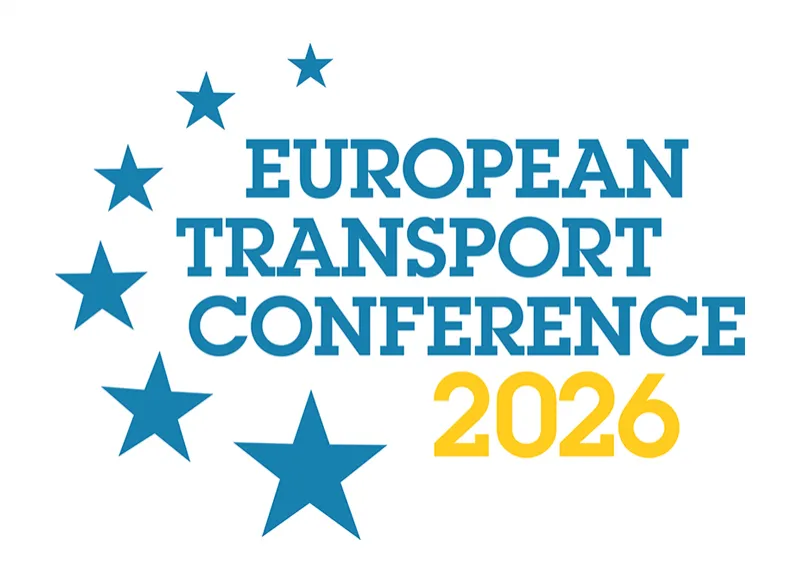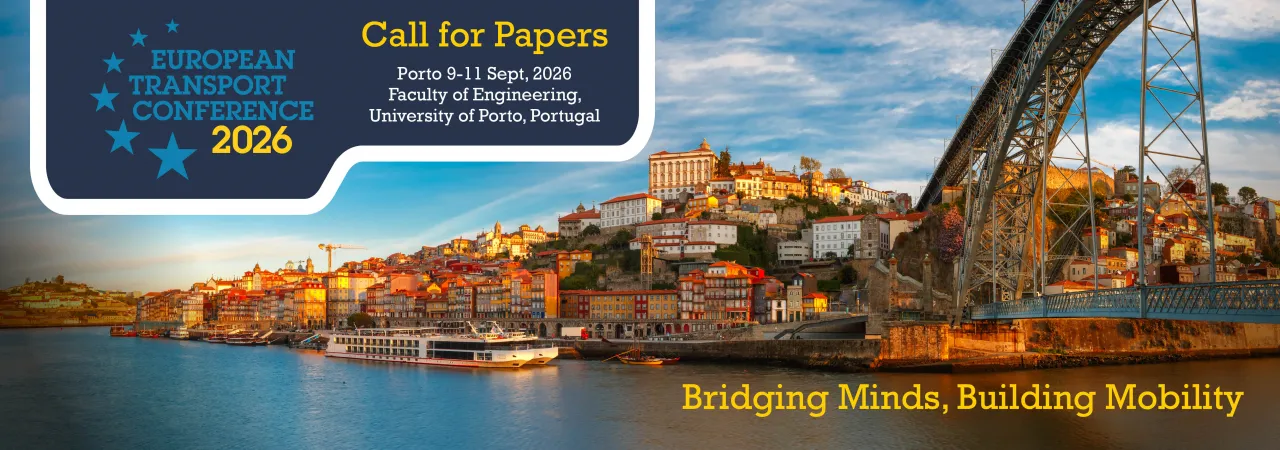Chair: Andre Goncalves, Sweco, BE
Mission Statement:
The Young Researchers’ and Practitioners’ Forum (YRPF) is a special format for young professionals. Early career researchers and practitioners are invited to present their work to the participants of the European Transport Conference. The Young Researchers’ and Practitioners’ Forum is also organized by young professionals. Early-stage and experimental projects and research ideas are explicitly welcome. The forum is intended to provide a format which enables constructive and comprehensive feedback as well as more time for discussion than usual.
ETC 2026 - YRPF Call for Papers
While submitted abstracts will be allocated for consideration to the programme committees according to their topics, the YRPF can be chosen by authors <35 that would prefer to present their work in the YRPF stream. Please select this option while submitting your abstract if you are interested in the extensive guidance that the YRPF provides for their accepted speakers.
We invite you to submit abstracts for an array of engaging formats! In addition to traditional papers followed by presentations and Q&A sessions, we welcome interactive contributions such as workshops, pitch and feedback sessions, debates, and live interviews. Do you want to present a serious game, gather feedback on your concept, or showcase an innovative product or process in the transportation industry? Please submit your abstract and clearly state the type of session you would like to organise or be a part of. We encourage diverse approaches that stimulate discussion and collaboration across the themes outlined below.
For the 2026 conference the YRPF has identified areas of interest that we are especially interested in for exchange of knowledge and discussion:
- Innovative uses of data: We live in a world overflowing with data—far more than we can analyze. Explore use cases where data has been effectively used to solve practical problems, improve efficiency, and generate valuable insights. These examples often involve integrating multiple data sources to maximize explanatory power, relying on data fusion techniques to combine and make sense of diverse datasets.
- Artificial Intelligence in Transportation: With AI developing with lightning speed, its utilization and application in transport has never been more important. Explore the transformative role of Artificial Intelligence in transport systems, focusing on innovations that enhance efficiency, safety, and sustainability. This theme invites contributions from young researchers and professionals on applications of AI in transport including but not limited to traffic management, autonomous vehicles, and data-driven decision-making.
- Data governance: One of the key challenges in working with data is addressing how it is regulated, its ownership, ensuring privacy, maintenance, and establishing data-sharing agreements. These issues often represent the most difficult aspects of starting a data science project. Case studies where innovative and efficient frameworks have been successfully implemented in similar projects.
- Resilient and reactive networks to natural disasters: showcasing case studies and models that enhance the adaptability of transport networks, ensuring continuity and safety in disaster-prone regions. Key areas of focus include risk assessment, adaptive infrastructure design, and real-time response mechanisms, alongside collaboration among stakeholders during emergencies.
- Green innovative policies: understanding forms of collaboration among public, private, and research bodies for developing policy frameworks that leverage synergies for green initiatives and show how by uniting expertise and support, these partnerships drive scalable solutions and accelerate systemic change toward sustainability.
- Transport equity: exploring ways to understand and reduce inequalities in access to transportation, such as gaps between different income levels, genders, and regions; finding inclusive solutions to make mobility easier for underserved communities; and creating strategies that ensure fair and sustainable access to transport for everyone.
- Last mile logistics: This theme explores innovative solutions in last mile logistics, focusing on, but not limited to the integration of drones and cargo-cycling. As urban areas face increasing congestion and demand for efficient delivery systems, these technologies offer sustainable alternatives to traditional transport methods. Discussions will highlight advancements, challenges, and the potential of last mile logistics and focus on newer and more sustainable modes such as drones and cargo-bikes to enhance logistics efficiency while reducing environmental impact.
- Back to the future: exploring futuristic transport systems and emerging technologies shaping the future of mobility, such as hyperloop systems, electric vehicles (EVs), hydrogen-powered vehicles, autonomous transport, and urban air mobility solutions like drones.
- Environmental, Social and Governance (ESG) in mobility: integrating mobility into ESG (Environmental, Social and Governance) strategies, including corporate plans that prioritize sustainability, reduce carbon footprints, and promote employee well-being; exploring innovative solutions for greener commuting and shared mobility; and advancing policies that align business goals with responsible and inclusive practices.
- Sector coupling – energy + mobility: understanding how integrating transportation systems with energy infrastructure is realised to enhance efficiency and support decarbonization. Vehicles are used for energy storage and grid stabilization while optimizing the use of renewable energy. Showing how this synergy reduces emissions and contributes to fostering a sustainable transition in both sectors.
The Forum also administers the Neil Mansfield Award to the best paper presented in the YRPF sessions at the conference by a sole author aged 35 or under. The Neil Mansfield award is given in the name of a brilliant young researcher in the UK who passed away at a young age.
Important notice:
Each year we receive more abstracts than can be accommodated in the programme. If your abstract is selected, please be aware that others have been rejected, that the ETC organisation has invested time in devising an attractive and coherent programme and that delegates use this programme to decide to come to the conference.
Before submitting your abstract, please make sure at least one of the authors can attend the conference to present the paper or poster, that finances are available for conference fee, travel and accommodation costs and that you have/will obtain the approval needed (from management or client) to present the work in public at the time of the conference. If your paper is accepted, you will be required to book and pay for the conference by the end of June.
We do understand that sometimes circumstances can force authors to withdraw. If so, you would help us by informing us as soon as possible. Last minute withdrawals or no-shows negatively affect the conference experience of your fellow transport professionals.












